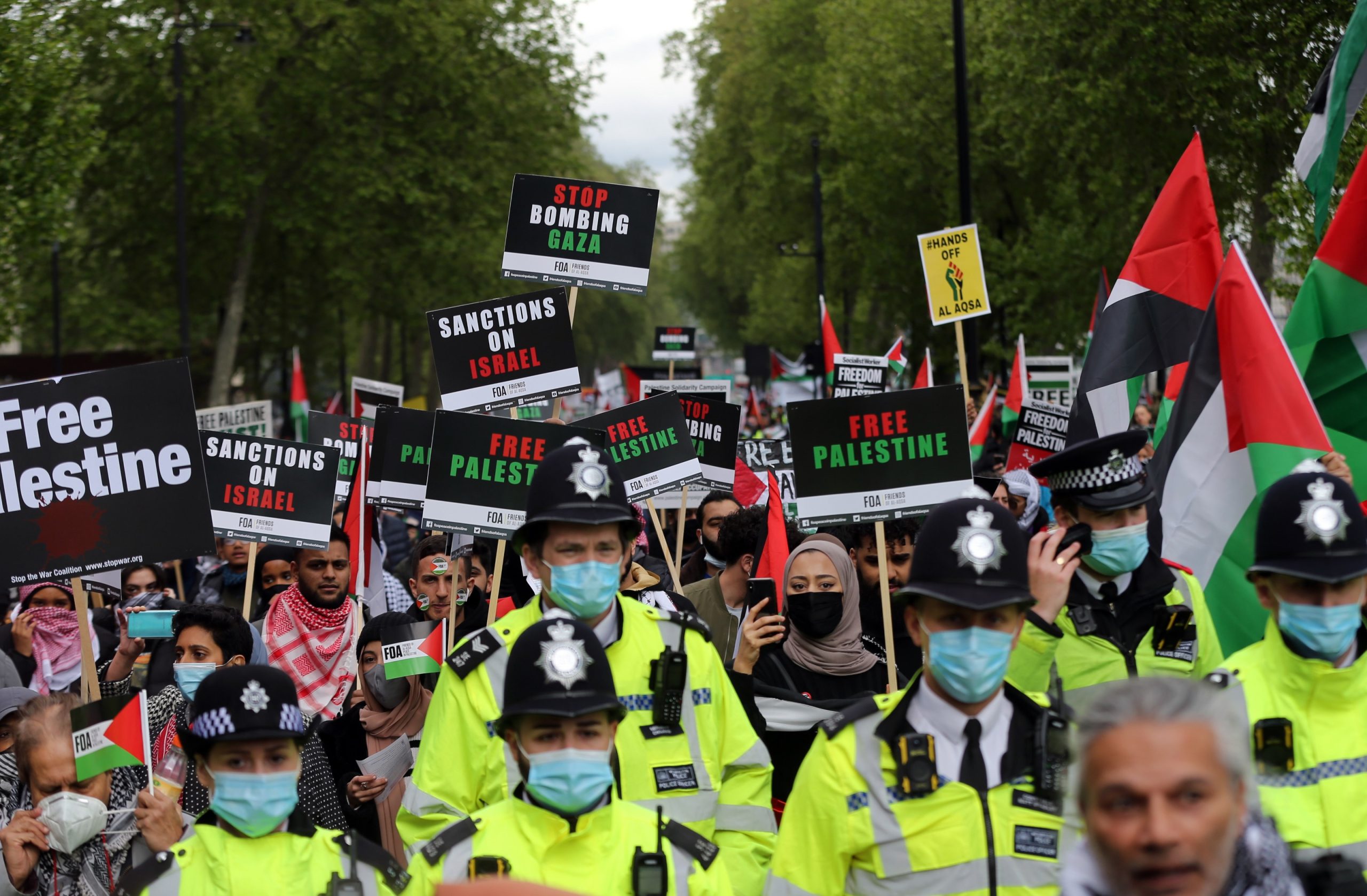For many years Israeli propaganda has swayed much of the Western world but recently, Palestinians have been able to cut through and shine a light on what is actually happening.
After eleven days of air strikes by Israel, a ceasefire was agreed to put a halt to the violence. The truce was considerably quicker than had happened previously — the last war in 2014 lasted seven weeks. Did the overwhelming criticism of Israel play a part in expediting the ceasefire? And what part is popular culture playing in that?
Here are four ways Palestinians have been able to rebut Israeli propaganda and control the media narrative:
1. Social media is bypassing traditional media
Traditional media is always been accused of not being particularly objective or sympathetic towards the Palestinians. They only wake up and take note midway through the conflict when Palestinians react. The ongoing violence Palestinians face — whether that’s the decades of occupation or the annexation of Palestinian land — doesn’t seem particularly newsworthy.
1) Status quo: occupation/apartheid is violence against Palestinians
2) Then Israel escalates through evictions/beatings/shootings
3) Then some Palestinians respond w/violence
4) Then Israel “responds” w/massacres
If u start reporting at #3, you’re misleading your audience.
— Omar Baddar عمر بدّار (@OmarBaddar) May 10, 2021
But many people these days get their news from social media. Although there has been the accusation that social media companies are removing and blocking pro-Palestinian posts and hashtags, it’s still been an important tool for supporters to raise awareness.
Even before the violence escalated, there was exposure on social media of what happened before; the annexation of Palestinian land in Sheikh Jarrah and the subsequent attacks on Al-Aqsa mosque. Infographics have been key to ensuring everyone understands the narrative and the backdrop of what’s happening.
And when mainstream media finally started taking note, social media was outflanking its coverage with unfiltered images and raw footage of the destruction caused by Israel.
WARNING: Distressing scenes and sounds.
This was the moment a resident captured an airstrike hitting the vicinity of their residential tower block.
#gaza #airstrike #palestine #news pic.twitter.com/Aqg9NR8WHq— Islam Channel (@Islamchannel) May 12, 2021
2. Muslim/Arab influencers and sports stars
Much of that activity on social media in the early days came from prominent Muslima and Arab figures. With a combined reach of nearly 110m followers on Instagram, Bella and Gigi Hadid (whose father is Palestinian) have the most influence when it comes to raising awareness.
With more prominent and successful Muslim sports starts emerging, they’ve been particularly successful in shining a light on the situation too. UFC fighter Khabib Nurmagomedov, rugby league star Sonny Bill Williams and cricketer Azhar Ali have all shown solidarity.
English Premier League football stars have been particularly vocal, including Manchester City’s Riyad Mahrez, Arsenal’s Mohamed Elneny and Liverpool’s Sadio Mane.
Leicester City’s Hamza Choudhury and Wesley Fofana celebrated their FA Cup final win over Chelsea with a Palestinian flag in front of millions, triggering others to do the same including Manchester United’s Paul Pogba and Amad Diallo.
3. Similarities with recent popular movements
It’s not just Muslim and Arab celebrities being vocal. The likes of Susan Sarandon, Roger Waters and Mark Ruffalo, have always been supportive.
But celebrities, not known for speaking about the plight of Palestinians, have shown solidarity, including Dua Lipa, The Weeknd and even Israeli-American actress Natalie Portman.
It’s not difficult to see why that’s the case. In the last couple of years, celebrities have rallied around social justice movements like #MeToo and #BlackLivesMatter. It would be tough to talk about those injustices but ignore illegal Israeli occupation and stay deadly silent about #FreePalestine.
Followers of celebrities and influencers are also overwhelmingly millennials and Gen Z types, who seem more conscious about popular movements and activism — and they expect their idols to be just as passionate about those causes.
The BLM movement has obvious parallels with the Palestinian cause — the liberation of black people in the United States can easily be linked with the liberation of the oppressed in Palestine.
So it’s not surprising to see that BLM slogans are being mimicked, such as ‘Palestinian Lives Matter’ and ‘Palestine Can’t Breathe’, on social media.
Palestinian Lives Matter https://t.co/tbSyxYwr6P
— John Legend (@johnlegend) May 16, 2021
4. American narrative around Palestine is changing
Israel usually enjoys unwavering support from the United States but that seemed to change this time around.
President Biden and establishment Democrats may still want to placate Israel but progressive democrats are willing to criticise the White House for ignoring Israel’s human rights abuses.
When New York City mayoral candidate Andrew Yang showed one-sided support for Israel, he was quickly forced to publicly roll back his support amid criticism from his own supporters.
Members of ‘The Squad’, which includes Palestinian-American Rashida Tlaib, Somalian refugee Ilhan Omar and Alexandria Ocasio-Cortez, have been particularly scathing. Drawing parallels with the racism and segregation that existed in South Africa, both Tlaib and Ocasio-Cortez have called Israel an ‘apartheid state’, echoing the report published by Human Rights Watch in late April.
It’s not just politicians. Mainstream US media has been uncharacteristically honest about Israel’s illegal activities. Last Week Tonight’s John Oliver trended on social media following his blistering monologue about Israeli war crimes.
The Daily Show’s Trevor Noah criticised Israel’s disproportionate use of force and news influencer Philip DeFranco, who has 6.4m followers on YouTube, also listed Israel’s violence and blamed the US government’s complicity.
Meanwhile successful Muslim journalists, like Mehdi Hasan and Ayman Mohyeldin, are going against the grain on mainstream news networks by holding Israel to account.
Finally, it seems, western popular culture seems is presenting the Palestinian side.






